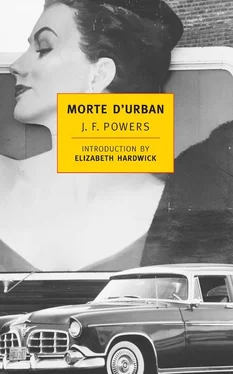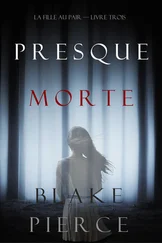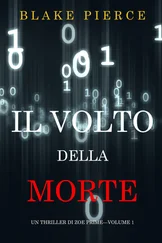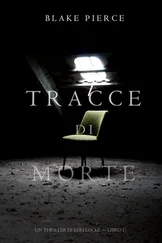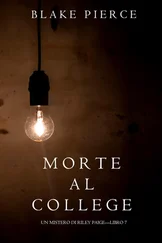A few days later, Billy dropped in at the old Loop offices of the Order. Father Urban had been hoping to see him again, but he was sorry that it had to happen there. The old building occupied by the Clementines had been in receivership for years and looked it — looked condemned, in fact. The Clementines were on the fifth floor. The previous tenant, a publisher of “sexual-science” books, had prospered and moved, but the frosted glass doors still bore the words President, Sales, Editorial, Legal, and Dr Fish. That nothing had been done about these words, and that nothing like painting or washing had been done in all the time of their tenancy, was now a matter of pride with some of his colleagues, Father Urban told Billy. “But frankly, Mr Cosgrove, I think we’re overstating the case for poverty.”
Billy thanked Father Urban for the load of wood, saying it had come as a great surprise to him, and suggested a ride in the country. They went down to the car he’d just bought, a flaming red convertible, motor running and double-parked, but with a friendly policeman watching over it. Billy, paying more attention to the car than to Father Urban, drove east, then north, and onto the Outer Drive. Weaving from lane to lane in defiance of the law and safety, and without a word of explanation to Father Urban, who had fallen silent, he passed everything in sight, and when a squad car zoomed out of ambush and came into contention, he smiled at the officers and — pointed to Father Urban in his clericals. The squad car dropped away and the red convertible went on for a while as before. “I hope you didn’t mind that,” Billy said presently. He was now driving at a reduced speed, and Father Urban took this into consideration. “Oh, I guess not,” he replied, with a laugh. He had minded, though, and still did. When they had passed Evanston, and seemed to be heading for nowhere in particular, though again at a very brisk clip, Father Urban suggested a visit to the Novitiate, which lay a few miles to the east of them. “Why not?” said Billy.
The Novitiate was a major and minor seminary, a home for aged and invalid Clementines, a haven for missioners between engagements (“We’re primarily a preaching order, Mr Cosgrove, preaching and teaching, you might say”), and the headquarters of the Chicago province (“I’ve always thought this one should be known as the Western, or the other one as the New York or Boston instead of the Eastern province, as it is. One way or the other, Mr Cosgrove, don’t you think? Just the two provinces, yes. Separate but equal. No, actually, we’re the stronger. Iron Curtain? I suppose you could say it’s something like that, yes — administratively, that is — but in recent years I’ve traveled all over the country. No, at the moment, I’m about the only one who does that as a regular thing. Yes, I realize you meant that as a compliment, but I don’t think unfair competition is quite the term, or even competition. There’s a fine, open spirit between our two provinces, just as there is between provinces in other orders, and likewise between our order and others. We’re all in this thing together — one big happy army, you might say.”).
The Novitiate was also the source of the split oak logs that had gone to Billy Cosgrove’s house on the North Shore, but only after a struggle, for although there was an abundance of wood at the Novitiate, and no shortage of slave labor, the farm and the woodpile were in the hands of hairsplitters. It would have been much easier to get a cord of books out of the library. Oh no, Father Urban had been told, the wood might not be missed, but this didn’t mean that outsiders were entitled to it, and Father Provincial was the only one who could dispense largesse on such a grand scale, and so on. Father Urban had offered to pay for the wood out of his own pocket, and might have done so. As a Clementine, he possessed nothing, and the cassock he wore around the Novitiate was pocketless — St Clement of Blois, the Holy Founder of the Order, having regarded pockets rather than money as the root of evil — but Father Urban was away from the Novitiate most of the time, and while he was away his pockets filled up. Nevertheless, he was true to his vow of poverty — to the spirit, though, rather than the letter. For someone in his position, it could not very well be otherwise. Always, after an accounting at the Novitiate, there would be a surplus: not Mass stipends, which had to be turned in and processed, but personal gifts from grateful laymen and understanding pastors, fives, tens, and twenties literally forgotten among Father Urban’s effects or prudently held out because traveling first-class cost so much more than a tight-fisted bursar could be expected to make allowances for without losing respect for himself and his job.
Father Urban got the wood, however, after he said, “I happen to know that the Dalmatians are making a play for this man.”
Showing Billy around the grounds, he met two of his late antagonists, now all smiles, and said, “Yes, Mr Cosgrove, when they found out the wood was going to you, they were afraid it wouldn’t be good enough.”
“We have more than we can use,” said one.
“You’re welcome to more,” said the other.
Father Urban, moving on, guided Billy to Our Lady’s Grotto. They knelt for a moment in prayer. Then they drank from the spring.
“You ought to bottle it,” Billy said.
“Think it would pay?”
“ No .”
Father Urban laughed. “I see our good friends the Dalmatian Fathers are now selling hams.”
“ They should.”
Father Urban laughed again. “Good enough,” he said. Although more and more orders were finding it necessary to go into business, there were still laymen, and not all of them crackpots, who took a dim view of this development. Billy Cosgrove, it seemed, was one of them.
Father Urban returned to Chicago with Billy, dined at L’Aiglon with him, and then caught a sleeper for Cincinnati — still not knowing what to make of the man. Their talk had turned to trains, on which Billy was an expert, and there it had stayed. Father Urban had expected something of a delicate nature to come up when he was invited to go for a ride, and again when he was invited to dinner, but Billy, a widower and childless, didn’t seem to have a problem in the world. In a way — because so many problems were simply insoluble — Father Urban was glad.
Toward the end of October, when Father Urban was back in Chicago for a few days, Billy had taken him to lunch in the Pump Room. Afterward, they walked to an address near by, a half-timbered store front with a mullioned bow window. “No questions?” Billy asked.
“Lead on,” said Father Urban.
Billy took him inside, into a display room which, to judge by a couple of cardboard signs, had been vacated by a manufacturer or distributor of longhair phonograph records—“¡Panache Ltd!” Father Urban followed Billy down a corridor to the rear where there was a stockroom. On the way back, Billy threw open doors to the rooms that led off the corridor, three on each side — offices. Leaving the display room by a side door, they were in the lobby of an apartment building of the better class. They went up in a self-operating elevator, and presently they were strolling around on the roof. Father Urban asked no questions, and Billy, who was obviously enjoying the pantomime, offered no explanations.
They were gazing down upon Chicago and Lake Michigan when, at last, Billy spoke, saying that the roof could be put to some use, perhaps recreation. Then, after a pause, he said, “This would be a prestige address for any concern.” Father Urban looked far out across the water, where a sail was coming in, and thought that this was the longest buildup to nothing in his experience. He was disappointed that Billy’s intentions, so long a mystery, had come to this, for, of course, Billy was wasting his time if he hoped to rent the property to the poor Clementines. He might have the right man in Father Urban, but he had the wrong order. Father Urban wondered if he himself weren’t partly responsible. He had painted a pretty rosy picture of the Order of St Clement, and Billy might have taken, say, “far-flung,” one of Father Urban’s favorite terms, to mean, say, “flourishing,” and so on, right down the line. Just as Father Urban was opening his mouth to tell Billy that he’d talk it over with the fathers ( Don’t call us, we’ll call you ), he heard Billy say, “I’ll let you have it for a song — for a prayer, Father.”
Читать дальше
